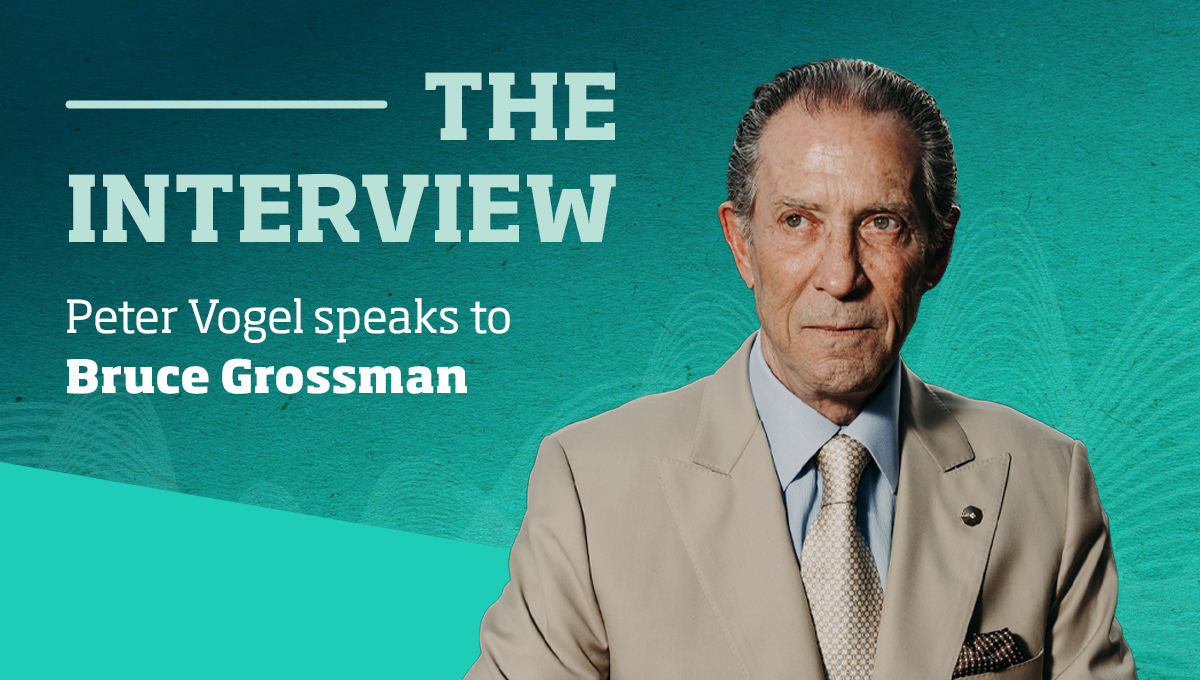Leading in turbulent times webinar series: family businesses

This webinar given by IMD’s Peter Vogel, Professor of Family Business and Entrepreneurship, Director of IMD’s Global Family Business Center and Debiopharm Chair for Family Philanthropy, appeared live on Monday 27th April at 11am CEST.
The COVID-19 crisis is affecting all types of businesses. However, family enterprises will be affected in a particular manner because of the inter-dependencies of the family, ownership group and the business.
Multi-generational family businesses, that is family businesses who managed to stay united and successful in business across generations, have survived world wars, pandemics, financial crises and recessions over the last centuries. This is one area explored in this webinar.
Professor Vogel says, “Among the 500 largest family businesses in the world you can find close to 40 firms who have been around for over 150 years. They have clearly done a few things right in order to not only survive for that long, but to flourish over time.”
Resilience and adaptation are two core principles of long-term success. In his research and work with multi-generational family enterprises, Professor Vogel has identified some core traits and characteristics of resilient and well-adapted companies, including long-term thinking, financial prudence and emotional connection of the family and owners. In addition to these he has pinpointed family values and loyalty, entrepreneurial renewal and adaptation as well as a sense of greater social responsibility to be key. He presents these in more detail in this webinar.
However, these characteristics are not enough anymore. As Professor Vogel says, “While these traits were great to get you to today, they are no longer enough to survive the globally connected 21st-century business landscape amidst exponential technologies and the fourth industrial revolution. Reactivity is no longer an option!”
The complexity of the current crisis lies in the fact that COVID-19 comes at a time where digitalization is on everybody’s agenda. More traditional, long-term oriented family businesses are struggling to compete with new players who enter their industries with novel and disruptive products, services or business models. While digital transformation was once considered an option by some owners and boards, it has quickly become a “must-have” if you want to survive into the year 2021, forcing many companies to fast-forward their digitalization efforts.
In order to survive the current crisis, family businesses must also fundamentally shift their approaches towards leadership, strategy and governance. Small cracks in the system can quickly lead to a failure of the entire family enterprise system.
Long-term, holistic and integrative approaches are needed, bringing together the family and owners, the board and top management to protect the different stakeholders’ interests and needs. They must move closer together and form highly agile and real-time decision-making entities that not only weigh up the different short-, mid- and long-term risks, but also seek out new business opportunities. As we know and Professor Vogel reinforces, every crisis is also the source of new opportunities.
The webinar explores concrete actions that should be taken on the family, ownership and business side and provides a set of recommendations with regards to governance. “Family businesses with world-class governance will shine and come out of this crisis stronger. Those who are struggling must look at it as an opportunity to work on their governance systems, at last,” Vogel says. Now is also the time to take advantage of the tech savvy next generation.
Peter Vogel ultimately puts matters into perspective: “COVID-19 isn’t the last crisis your business will see. However, it is stressing us all in a unique way. Supply and demand are equally squashed. The world is at a sudden standstill.” So, he says, let’s learn from it and get stronger: “See this as a wake-up call and then build resilience into the system.”
And indeed, the majority of family businesses are optimistic about their future, as the webinar’s final poll with viewers revealed.
If you have specific questions about this webinar, your family business or family office, please contact the IMD Global Family Business Center.
To view all webinars, please visit our Leading in Turbulent Times page here.
Research Information & Knowledge Hub for additional information on IMD publications
BARCELONA, JANUARY 2023. What started in 2016 as a humble entrepreneurial attempt to contribute to a more sustainable future had turned into a solid eyewear brand present in major Western markets. François van den Abeele was even more excited by t...
While retail company AllSaints had delivered a great performance in 2022 – with revenues of £470 million – it faced multiple challenges. First, keeping stores open was a fundamental strategy for the company to connect to customers and deliver a be...

The ability of women to empathize and act ethically and responsibly makes them ideally placed to lead us into a future where AI benefits all society, not just the wealthy.
This note, designed for use in sessions and programs on negotiation, explores five distinct negotiator types: competitor, collaborator, strategist, innovator and problem solver. Each type has unique characteristics, strengths and weaknesses that c...
Founded by Lim Hock Chee in 1985, Sheng Siong has evolved from a humble grocery store into a leading supermarket chain in Singapore, renowned for its cost-effective pricing and commitment to customer satisfaction. Mr Lim’s unique philosophy, which...
This technical note introduces two powerful frameworks for navigating complex, rapidly changing business environments: TSUNAMI and SURF. The TSUNAMI framework provides a comprehensive tool for assessing external challenges across seven dimensions:...
The GreenGro (A) case explores the challenges faced by GreenGro, a mid-sized agricultural technology company, as it navigates a rapidly changing industry landscape. CEO Sarah Chen and her leadership team are confronting issues ranging from technol...
The GreenGro (B) case study is a follow-up to GreenGro (A) and details how the company applied the TSUNAMI and SURF frameworks to address its complex challenges. The case illustrates the practical implementation of these frameworks, introduced in ...

Balancing authenticity with workplace demands poses a challenge for leaders striving for integrity. How can you reconcile your true self with organizational expectations?

Fourth-generation family member Bruce Grossman tells IMD’s Peter Vogel about his successes and failures in establishing structures to unify the family enterprise and the lessons he hopes the next generations will take from the experience.
Research Information & Knowledge Hub for additional information on IMD publications
Research Information & Knowledge Hub for additional information on IMD publications
in I by IMD 16 January 2025
Research Information & Knowledge Hub for additional information on IMD publications
Research Information & Knowledge Hub for additional information on IMD publications
Research Information & Knowledge Hub for additional information on IMD publications
Research Information & Knowledge Hub for additional information on IMD publications
The GreenGro (A) case explores the challenges faced by GreenGro, a mid-sized agricultural technology company, as it navigates a rapidly changing industry landscape. CEO Sarah Chen and her leadership team are confronting issues ranging from technol...
The GreenGro (B) case study is a follow-up to GreenGro (A) and details how the company applied the TSUNAMI and SURF frameworks to address its complex challenges. The case illustrates the practical implementation of these frameworks, introduced in ...
Research Information & Knowledge Hub for additional information on IMD publications
This technical note introduces two powerful frameworks for navigating complex, rapidly changing business environments: TSUNAMI and SURF. The TSUNAMI framework provides a comprehensive tool for assessing external challenges across seven dimensions:...
The GreenGro (B) case study is a follow-up to GreenGro (A) and details how the company applied the TSUNAMI and SURF frameworks to address its complex challenges. The case illustrates the practical implementation of these frameworks, introduced in ...
Research Information & Knowledge Hub for additional information on IMD publications
This technical note introduces two powerful frameworks for navigating complex, rapidly changing business environments: TSUNAMI and SURF. The TSUNAMI framework provides a comprehensive tool for assessing external challenges across seven dimensions:...
The GreenGro (A) case explores the challenges faced by GreenGro, a mid-sized agricultural technology company, as it navigates a rapidly changing industry landscape. CEO Sarah Chen and her leadership team are confronting issues ranging from technol...
Research Information & Knowledge Hub for additional information on IMD publications
Research Information & Knowledge Hub for additional information on IMD publications


